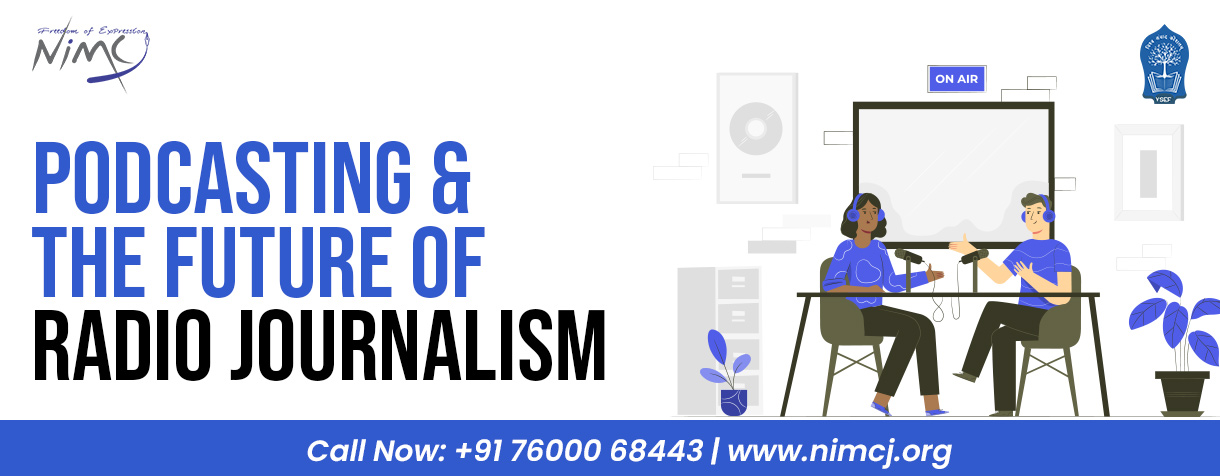
In the dynamic landscape of media consumption, podcasting and audio journalism have emerged as powerful and immersive platforms. As we navigate through the digital era, these audio mediums continue to evolve, offering new opportunities and challenges for creators, consumers, and advertisers alike.
Podcasting has witnessed an unprecedented surge in popularity over the past decade, and its growth shows no signs of slowing down. The accessibility of podcasts, coupled with the diverse range of content available, has turned them into a mainstream form of entertainment and information.
The portability of podcasts, accessible on smartphones and other digital devices, has transformed how people consume content. With the ability to listen on the go, users can seamlessly integrate podcasts into their daily routines, whether commuting, exercising, or multitasking.
Podcasting allows creators to delve into niche topics that may not have a place in traditional media. This has led to the rise of specialized podcasts catering to specific interests, creating engaged and loyal audiences.
Audio journalism, a subset of podcasting, brings traditional journalism into the audio realm. From news briefings to in-depth investigations, audio journalism provides a unique and intimate way for audiences to engage with current events and stories.
Audio journalism leverages the power of sound to create immersive storytelling experiences. Through interviews, ambient sounds, and carefully crafted narratives, journalists can transport listeners to the heart of the story, fostering a deeper connection and understanding.
Major podcasting platforms are increasingly becoming news hubs, aggregating a variety of audio journalism content. This centralization simplifies the user experience, making it easier for audiences to discover, access, and follow their favorite news shows.
Advancements in technology continue to shape the future of podcasting and audio journalism. From interactive features to improved audio quality, technological innovations are enhancing the user experience and opening up new possibilities.
The integration of voice recognition and AI technologies allows for more personalized content recommendations. This not only improves content discovery for users but also presents new avenues for targeted advertising.
As the demand for high-quality content grows, creators are adopting advanced production techniques. Binaural recording, spatial audio, and 3D soundscapes are enriching the listening experience, blurring the lines between traditional broadcasting and virtual reality.
With the increasing popularity of podcasts and audio journalism, monetization strategies are evolving to sustain creators and platforms. Advertisements, subscription models, and collaborations with brands are shaping the economic landscape of the audio content industry.
Dynamic ad insertion allows for targeted and contextually relevant advertisements, maximizing the effectiveness of marketing efforts. Advertisers can reach specific demographics, making podcast advertising more appealing and lucrative.
The rise of subscription-based models, where listeners pay for exclusive content or an ad-free experience, provides a steady revenue stream for creators. This shift towards direct listener support is reshaping the traditional advertising-centric approach.
Despite the promising trajectory, podcasting and audio journalism face challenges that necessitate strategic solutions. The over saturation of the market, discoverability issues for new creators, and the need for industry standards in measurement and analytics are areas that demand attention for sustained growth.
With the sheer volume of podcasts available, discoverability remains a challenge. Creators and platforms are exploring ways to enhance search engine optimization (SEO) for audio content, making it easier for users to find relevant podcasts through search engines and podcast directories.
As monetization strategies diversify, maintaining a balance between revenue generation and a positive listener experience becomes crucial. Creators need to navigate ethical considerations, ensuring that advertisements and sponsorships align with the values and expectations of their audience.
Also read: What Is Radio Production and Difference Between Radio and PodcastingAs podcasting and audio journalism continue to evolve, the future looks promising for creators, consumers, and advertisers. The accessibility, diversity of content, technological advancements, and innovative business models contribute to the thriving audio landscape. Whether you're a listener seeking niche content, a journalist exploring new storytelling avenues, or an advertiser capitalizing on targeted engagement, the world of podcasting and audio journalism offers a dynamic and ever-expanding space for exploration and growth.
Whether you aspire to be a podcasting pioneer, an audio journalist, or a media entrepreneur, NIMCJ equips you with the tools to thrive in the evolving media landscape.
26 Dec 2023
Post by : NIMCJ